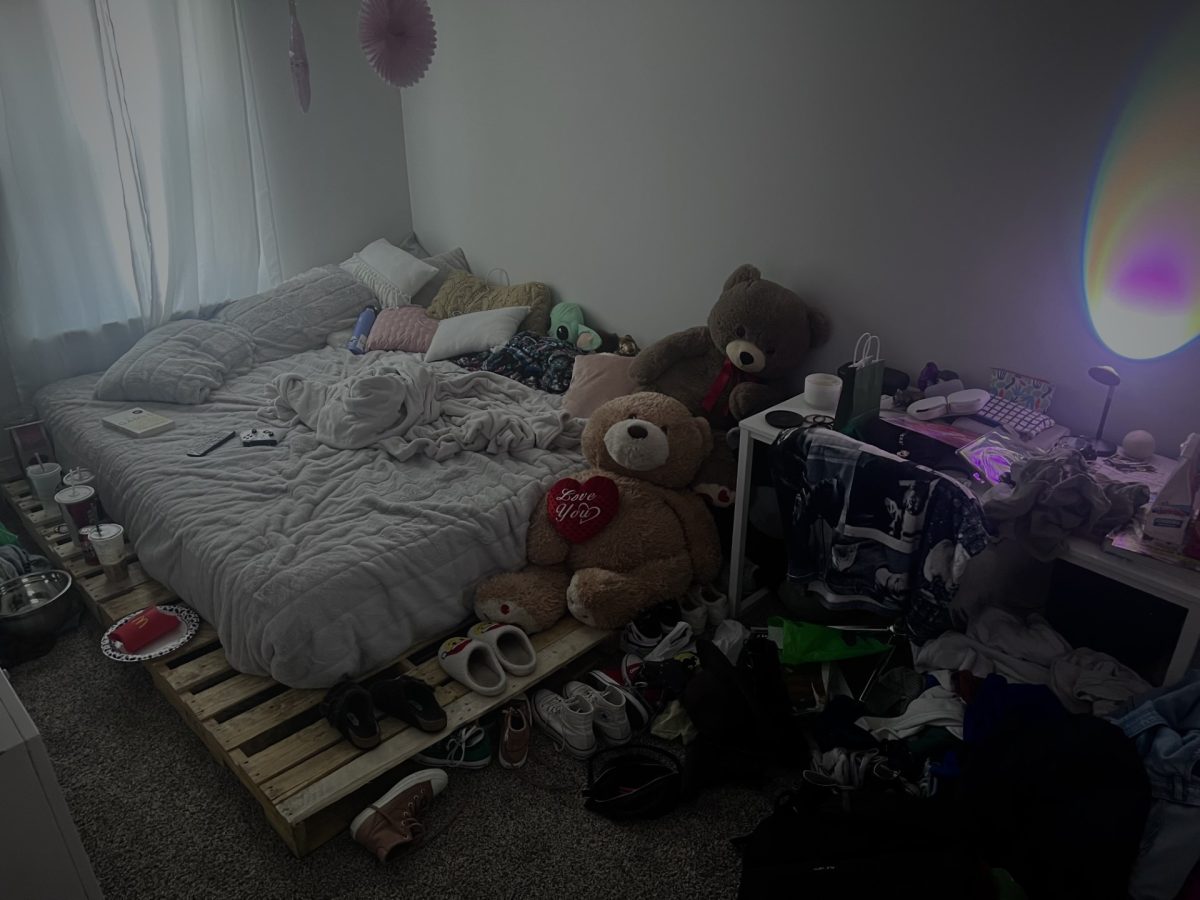Have you ever felt like Bella Swan from Twilight, just watching the colder months pass you by? You sit in a haze while the leaves change colors; they fall, a swirling storm of yellows and oranges, and reds, then they die completely. It starts to snow and all you can remember from the last few months is lying around in bed and forgetting to eat unless your parents make you, and you can’t see your bedroom floor because it’s a disaster.
You eventually emerge when you realize that the sun is out more, and suddenly, you’ve slept through an entire season. The temperature is approaching the 80s, and you can’t wear hoodies and sweatpants every day like you used to. You finally do not feel as miserable. You go back to school and you roam the halls feeling abnormal for feeling this way. But, all those empty faces in the familiar classrooms are feeling the exact same way. They all feel alone and scared. Seasonal depression is a normal experience for kids our age. I have even felt this way for years.
Seasonal depression is also known as Seasonal affective disorder (SAD). Mayo Clinic defines SAD as “a type of depression that’s related to changes in seasons.” Typically this type of depression introduces itself in the start of fall and tends to continue into the winter months. When spring comes around your despair leaves just as winter does. The science behind this disorder is speculated to be caused by the shorter days and fewer hours of daylight that come with the winter months. It causes a chemical reaction in the brain that leads to the same symptoms as common depression. Another reason for this is the increased production of melatonin in the body during the winter months. When it’s darker or there are generally less daylight hours, the body will make more melatonin, making people feel more tired and moody.
There are a variety of symptoms that go along with SAD, developing as the winter season progresses. Symptoms can include feeling down for days at a time, losing interest in activities you usually enjoy, having low energy, and sleeping too much.
Sometimes people have these symptoms in the spring and summer rather than in the fall and winter. There are two types of SAD: fall/winter and spring/summer. They are similar, they just occur at contrasting times of the year. So, if you are experiencing similar symptoms during the spring or summer then it is just as normal. For some people, the spring months are the hardest. Adam Kaplin, the Johns Hopkins assistant professor of psychiatry and behavioral sciences that focuses on depression and suicide states “In April, May and June, the suicide rate goes up and is the highest,” he goes on to say. “Those numbers can be two to three times higher than in December, when suicide rates are the lowest.”
If people are feeling depressed this season, it would be a promising idea to see a doctor or even just a therapist if they don’t want to be put on medication. The doctors will recommend they go outside more, exercise, or possibly even prescribe an antidepressant. These solutions seem so insignificant in the face of everything, people will probably even try them and still believe they aren’t fixing anything. But, it’s a battle people have to fight to get better.
When I first was diagnosed with depression, it wasn’t me that realized I was struggling; it was my dad. He took me to a doctor because he was worried about me because I never left my room. Now, don’t go thinking that staying in your room all the time means you have depression. As a teenager, it is completely normal to do that, but to stop eating, talking to your loved ones, in tandem with isolating yourself can worry a guardian. It isn’t always you that realizes something is wrong, sometimes you just need some help.
When I went to the doctor, they told me to change my habits. Not eating breakfast or lunch because “I wasn’t hungry” or taking naps every chance I got only perpetuated my depressive state. I was told to go on walks every day to get Vitamin D, and to start exercising more because it creates hormones that would help with my energy levels. Even now, looking back, I think the walks and eating on a regular schedule significantly helped. However, I know how hard it can be to do these simple things, so don’t stress if you can’t because depression is a process of taking one step at a time.
Although I now see why the doctors told me to do those things, I was livid. I didn’t want to do any of the recommended “cures” because I wasn’t convinced they would help me, it all felt like a performance, something to convince myself and everyone around me I wasn’t still feeling sad. But eventually, I was put on medication, and it worked for a while. The hard part about being put on medication is that it messes up your hormones so much that sometimes it can have the opposite effect. That’s why it is a process to find the right medication for you specifically. An issue that is personal to me is that your body can level out and the effects of the medication won’t work anymore even if you’re taking them every day. So, then you have to try a different type of meds, I still haven’t found the right one. Treatment for depression is different for everyone.
So, if you’re feeling melancholy this season, last season, or any season, it is okay to talk about it and ask for help. Don’t just brush off the way you feel, and definitely do not convince yourself it’s just a case of “the blues” or a seasonal funk. You also do not have to go through it alone, asking for help does not make you weak. Like I said previously, getting through depression is by taking it all one step at a time, so take the steps and help yourself get better. The strongest thing a person can do is to admit when they need help, so do it; because if I can, so can you.
Disclaimer: Articles designated as “Editorial” represent the views and opinions of the author, not the 2023-2024 Periscope staff, CHS/CASD administration, or the CHS student body.






























































































